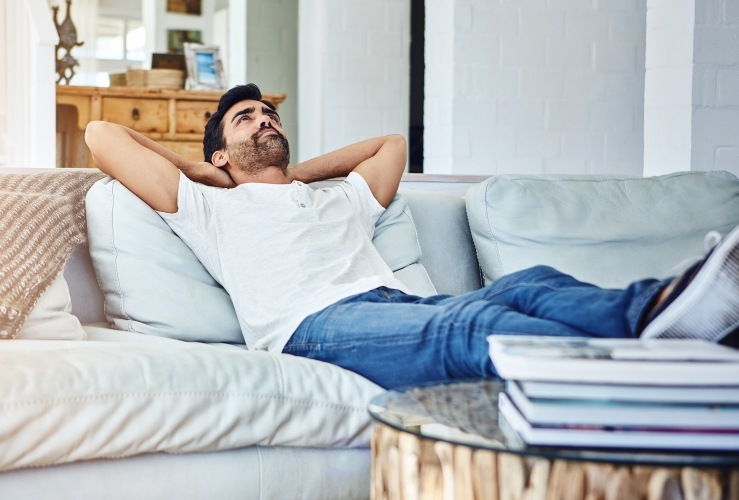Owning one’s own home is increasingly difficult. But what’s to blame? Brexit, an undersupply of homes, stagnant wages – or avocadoes on toast?
New research suggests the traditional bachelor pad may soon be a thing of the past, as young men are no longer able to afford a place of their own. As far as many males are concerned, buying with a partner now seems to be the only way to afford a property.
According to research by mortgage lender Halifax, almost half of 18 to 35 years olds say they need the help of a partner to get on the property ladder.
Any inability to buy property with a partner is seen as a big issue among men, who are twice as likely as women to identify it as a problem. These sentiments could spell the end of the bachelor pad.
Among those surveyed, 9 per cent of women thought they would need a partner in order to buy a property, compared to 18 per cent of men.
Wages of younger people have hardly changed since the 2008 financial crisis, while house prices have soared.
The average deposit for a new property is now nearly £33,000, significantly in excess of the average national wage.
55 per cent of men pinpointed insufficient salaries as the main reason why they could not afford a property, compared with 70 per cent of women.
Almost half of would-be first time buyers said they would purchase a home with a partner.
Martin Ellis, a housing economist at the Halifax, said: “It’s not difficult to see why so many young people are now waiting for a partner to take their first step onto the property ladder.
“With many people trying to fund day to day living while saving for a deposit for a first home may not even be able to imagine raising this amount of cash on top of all their regular outgoings, first-time buyers in the UK are still on average £651 a year better off buying their own home compared to renting.
“Getting to grips with the property market jargon, calculating what’s affordable and understanding borrowing options available – including Government schemes – will help bring people looking to own their own home closer to the first step, no matter how far away they feel they are from reaching that first rung.”
In contrast to most other European nations, home ownership remains a key ambition for many Britons. In 2003 a peak of 71% of households owned their own home. Since then this figure has reduced to 64%, with rising house prices and stagnant wages taking their toll – alongside the economic crisis of 2008.
Australians, it seems, hold similar ambitions, with 67 per cent of households owning their own property as of 2011. The UK's housing crisis is reflected in Australia, where getting on the property ladder is also a big challenge.
But not everyone is sympathetic. Self-made millionaire and property tycoon Tim Gurner recently suggested Australia’s housing problems would be solved if millennials stopped eating avocados on toast:
“When I was trying to buy my first home," said Gurner, “I wasn’t buying smashed avocado for $19 and four coffees at $4 each.”
“We’re at a point now where the expectations of younger people are very, very high.”
Back home, avocadoes take a back seat to the prospect of leaving the world’s largest trading bloc. How Brexit will affect house prices in the long-term remains to be seen. They have come down slightly in London since the referendum and have risen in most other regions.
With the decline of sterling, inflation is impacting household finances, increasing the proportion of income spent on rent and mortgages. All this has slowed the property market, as would-be buyers and investors wait to see how the Brexit negotiations progress.
However, with demand for properties far outstripping supply, homeowners are unlikely to lose too much sleep. Recent news that the European Investment Bank (EIB) is set to withdraw its £1bn annual funding for UK social housing will hit new housing projects hard. The EIB is the country’s largest new housing investor.
Unless the government embarks on a large-scale house building program, homeowners can feel relatively sure that their home will retain its value – putting smashed avocadoes back on the menu for many.





